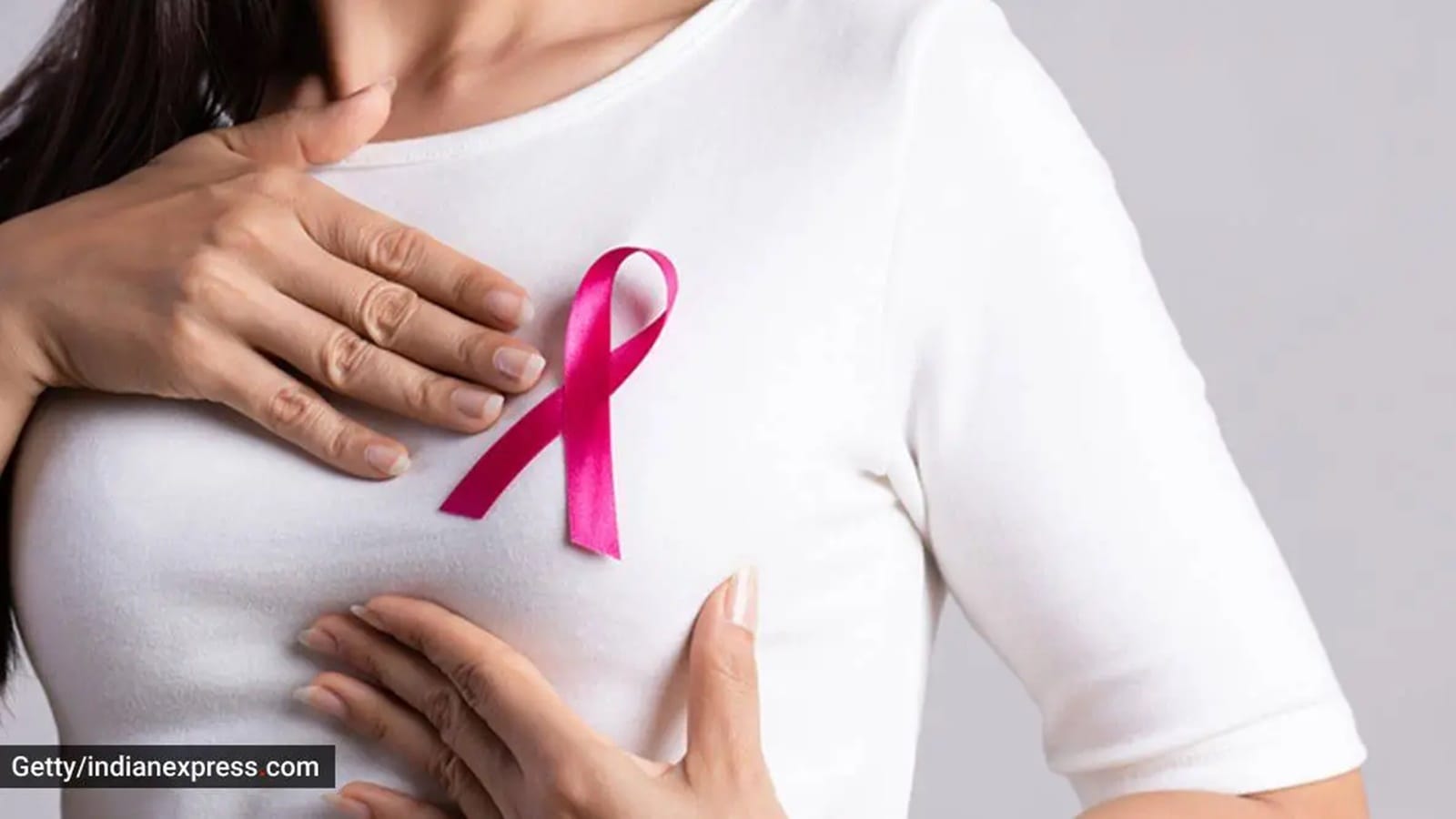Aruna Irani recently revealed that she battled breast cancer twice and chose to keep the news private. Stating that she was first diagnosed in 2015, the veteran actor said that she decided on medications and avoided chemotherapy before a resurgence in 2020. “Yes. Not once but twice. Everything doubles,” she remarked.
The 78-year-old recalled how she sensed something was amiss while at a shoot. “Aise hi ek din shooting kar rahi thi, pata nahi mujhe kaise pata laga par maine bola ‘Mujhe kuch lag raha hai’ (One day, I was shooting as usual. I don’t know how, but I just felt something and said, ‘I feel like something’s wrong’),” she said on the Lehren Retro podcast.
While told that the lump was minor, she insisted on its removal and was operated upon. “But I was at a shoot on the fourth day. Nothing happened. I was also hale and hearty. The doctor told me that I have to undergo chemotherapy clinically. Chemotherapy wasn’t that advanced back then. So your skin turned black, and you would experience hair loss. I asked the doctor for another way, and he told me to take medicine daily. That went on for five years,” added Aruna, admitting that it was a mistake she realised after the cancer resurfaced in 2020.
Story continues below this ad
 Here’s what to consider (Photo: Getty Images/Thinkstock)
Here’s what to consider (Photo: Getty Images/Thinkstock)
She also spoke about getting regular checkups done every six to eight months. “That’s how a lump was detected in 2020. It happened in the same spot on the breast. That time I got operated on. Meri hi wajah se…as pehle maine chemotherapy nahi lee thi. (Because of me…I did not opt for chemotherapy the first time. There was radiation,” continued the Laadla actor who underwent chemotherapy in 2020, just before Covid-19 pandemic.
Although she did experience some hair loss, it grew back. “Still, you lose a bit of your hair, but woh jaldi aa bhi jaate hai (it grows back quickly),” she added in the interview.
In addition to cancer, she was also diagnosed with diabetes at 60. At one point, doctors even told her that her kidneys had failed, though she came back stronger.
Let’s understand all about breast cancer and its recurrence.
Story continues below this ad
Breast cancer occurs when cells in the breast begin to grow abnormally and form a lump or mass. “While no single known cause exists, certain risk factors can increase its likelihood. These include age, family history, genetics, obesity or being overweight, lack of physical activity, alcohol consumption, and hormonal changes over a lifetime,” said Dr Meghal Sanghavi, oncologist, Wockhardt Hospitals, Mumbai Central.
According to Dr Sanghavi, factors such as never having conceived or never having breastfed may also slightly raise the risk, as they influence the body’s long-term exposure to hormones. “In many cases, the exact cause remains unknown, but a combination of inherited traits and lifestyle factors can play a role,” said Dr Sanghavi.
While the exact cause isn’t fully understood, mutations in genes like BRCA1 and BRCA2 increase the risk for women, added Dr Jyoti Mehta, MD, radiation and clinical oncologist, Onco-Life Cancer Centre, Talegaon. “It is possible that even after successful treatment, breast cancer can sometimes return, and this is called a recurrence,” said Dr Mehta.
Does breast cancer come back if it is treated with medications in the first instance?
Story continues below this ad
If breast cancer is diagnosed early, it can often be treated effectively with medications such as hormone therapy or targeted drugs, said Dr Sanghavi.
Dr Sanghavi said these medicines work by blocking the growth of cancer cells and preventing the spread of the disease.
“In some early-stage cases, medication alone may be sufficient. However, like with any cancer, there is always a possibility of recurrence even after what seems like complete treatment. This is why regular scans and follow-up check-ups are crucial. Rigorous follow-up, typically for up to 10 years, is recommended to monitor for any signs of the cancer returning,” said Dr Sanghavi.
When breast cancer does come back, it may recur locally (in the breast area or nearby tissues) or spread to distant parts of the body, such as the bones, liver, lungs, or brain, elucidated “Modern cancer treatments aim to minimize the risk of such recurrences as much as possible,” said Dr Vani Parmar, HOD, breast oncosurgery and surgical oncologist, KIMS Hospitals, Thane.
Is chemotherapy always necessary?
Story continues below this ad
Dr Mehta noted that some early-stage cancers may be treated with surgery, hormone therapy, or radiation only and may not need chemotherapy. “The expert will design the line of treatment per the woman’s stage and location of the cancer,” said Dr Mehta.
According to Dr Sanghavi, chemotherapy depends on the type, size, stage of cancer, and how quickly it grows. “If the cancer is fast-growing or widespread beyond the breast, chemotherapy will be recommended. But if it is slow-growing and small, surgery or hormone therapy can be more appealing options,” said Dr Sanghavi.
For example, postmenopausal women with very small, low-grade, hormone receptor-positive tumors may be effectively treated with surgery and hormone therapy without needing chemotherapy. Dr Parmar shared that chemotherapy is usually advised for younger women with triple-negative breast cancers or HER2-positive cancers because of their more aggressive nature. “In cases where cancer has spread to lymph nodes, chemotherapy is often recommended, although the decision also depends on how many nodes are involved and other individual factors,” said Dr Parmar.
Every breast cancer diagnosis is individual, and so is treatment. The key is to remain informed, follow treatments to the letter, and keep up with current screening and follow-up visits. With timely treatment and follow-up, many stay healthy and productive despite breast cancer.
Story continues below this ad
DISCLAIMER: This article is based on information from the public domain and/or the experts we spoke to. Always consult your health practitioner before starting any routine.























